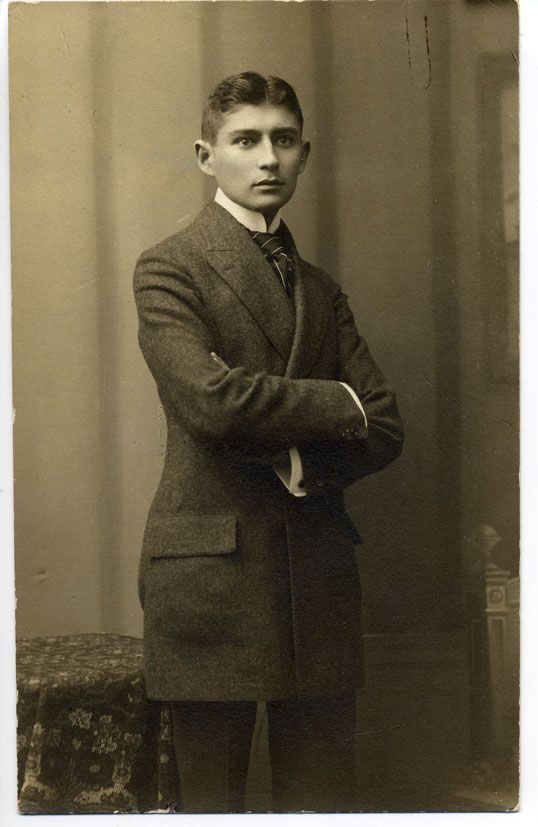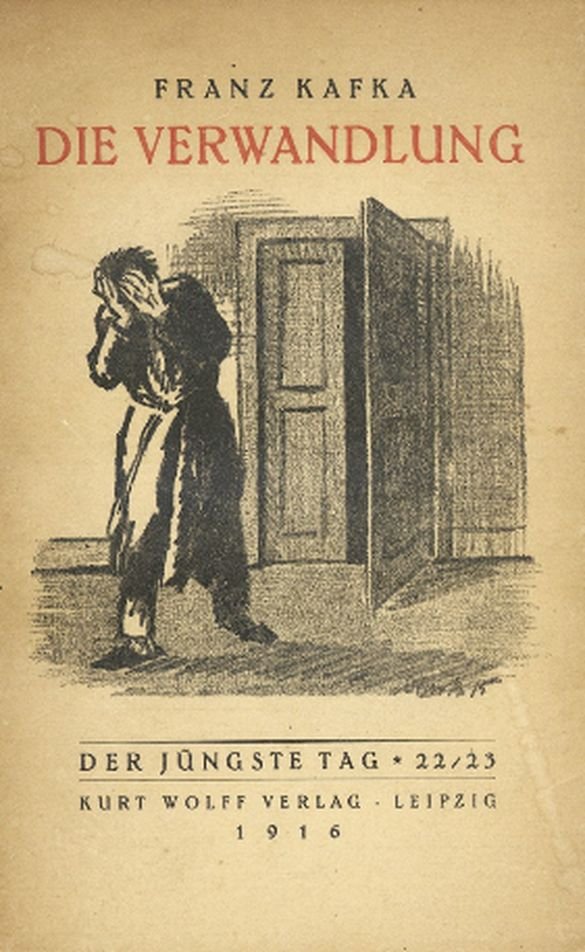In powerful and legendary combinations of words inside intense and deep literary paragraphs, the Austro-Hungarian (now Czechoslovakian) German-language writer Franz Kafka (1883-1924) gave to humanity, without even knowing it in his lifetime (although we do not rule out whether it was his desire or intention despite the controversy that states the otherwise), a legacy that until now seems immortal, noticing its intensification as an influence on popular culture and generations of the present.

Source
His legacy
A legacy of a large collection of short stories and complete novels (most of them published after his death) with stories that immediately mark the mind of the reader. Stories that travel around the world between analytical conversations about the Kafkaesque metaphors exposed in his works, which give much to talk about and challenge every thought about it.
His work has served to influence literary masters such as Gabriel García Márquez; Albert Camus; Jean-Paul Sartre; and the great Jorge Luis Borges, who in addition to having translated The Metamorphosis into Spanish, including a prologue of his authorship, in several writings he composed lines expressing his influence for the alcamed writer. The work of Kafka also highlights its inspiring scope in authors and creators of other artistic expressions such as theater, film, painting, sculpture and more.
A face to remember
One of those artistic works outside the writing field that honors his memory and legacy are the 42 mobile levels of this sculpture of 11 meters high that line up to form the face of the famous writer. This 39-tonne masterpiece is the brainchild of Czech artist David Černý, dated back on November 2014. It is installed outside the Quadrio shopping center in Prague, Czech Republic. Here is more info about this masterpiece, link.
It is just majestic.
Source

The fables and other works
Among his best known works we got The metamorphosis, The trial, The castle, The judgment_, The cares of a family man, Report to an academy and Investigations of a dog **. One of his preferences was to choose the fable as his literary composition, a fact that has been much taken into account by Kafkaesque analysts, some of those seeing this as a metaphor of the human decadence and its resemblance with the animal world behavior, telling commons situations lived in society through different kind of creatures.
In the world and mind of Kafka
Many critics consider that the stories of Kafka do not come or lead to any particular metaphor or have any sense at all, that they are just stories to entertain or nonsensical writings, some of these critics even give a derogatory tone when referring to this. It is very possible, of course, everything is open to possibilities, we believe we know everything without knowing anything and at the same time having the right to think we know things, often starting from the assumption based on simple and vague personal thoughts or unconsciously manipulated knowledge by external opinions to our own criteria on some subjects.
While we put the case (or probability) that the acclaimed author did not write with a background thought of giving a specific interpretation to their readers, even so, free interpretation is everyone's right and inevitable to happen. And if we now put the possibility that everything was written starting from analytical metaphors beyond the common thinking about the existence of the human being as an individual in society, this would only place the famous writer on a higher step on his genius and intellect.
Being a Kafkaesque
By nature you could say, that we always choose something with which we identify or feel more comfortable to take it with us most of the time whenever possible, whether if it is something physical or not tangible. In this case are both, my favorite writer among the many I admire and among the many that I need to read, is The King of the Fable (as I usually refer to him) Franz Kafka. Both because physically my small library fills part of its space with Kafka's pages, and not tangible because in ideas and interpretations that I have taken from reading those pages I always carry thoughts that I keep or apply in certain situations that I sometimes share on conversations with other people when remembering or relating a particular issue with Kafka’s stories.
I believe that The Metamorphosis is an excellent and proper gift to enrich and amaze the mind of those who take the time to read it and thus enter the Kafkaesque universe. His themes of existentialism and expressionism make even the most indifferent person question details about life that Kafka interprets through beetles, monkeys and dogs in small surreal worlds that the reader will soon relate to his reality.

Source
His work, considered one of the most influential of universal literature and the most outstanding of the twentieth century is, to remain, point of conversation, analysis, interpretation and controversy among lovers of good reading from generation to generation.
Not only is his legacy part of that world that lies outside the screen you now observe, but now will also be remembered forever in the world of the blockchain when chaining this publication dedicated to the great and immortal writer in the network with the other millions of crypto-links.

I hope you enjoyed this post.
All comments are welcome.
Thanks for reading.
Yimi Ipsa.
This post was upvoted by the Steemit Book Project! The project exists to help make books more available to the world and to promote book-related content on Steemit.
You can read more about the project here. If you write book related posts, head over to our Discord server (https://discord.gg/h93nHMu) and pop your book post links in the #curation-requests channel.
Hope you have a wonderful and bookfull day!